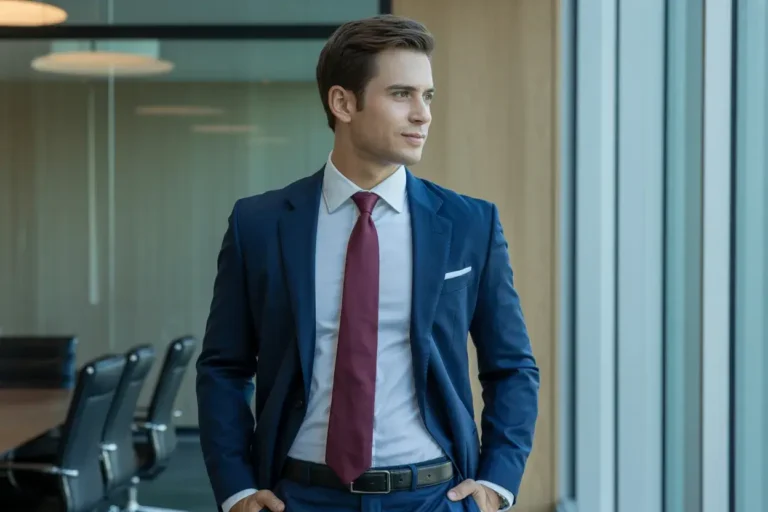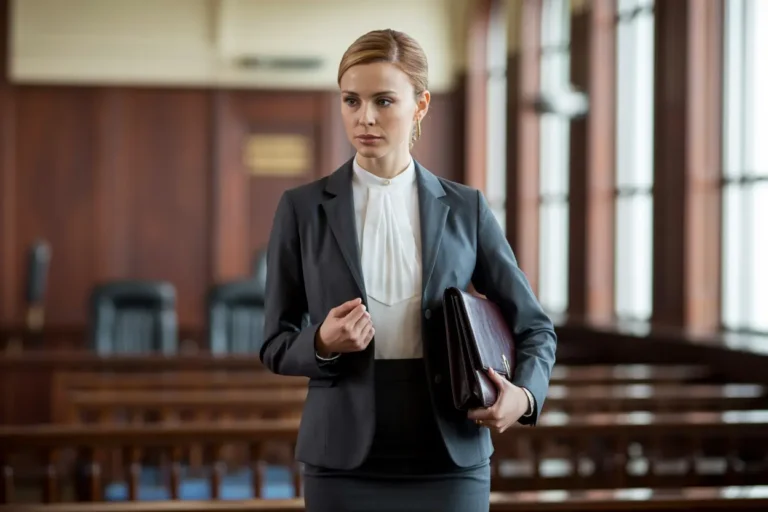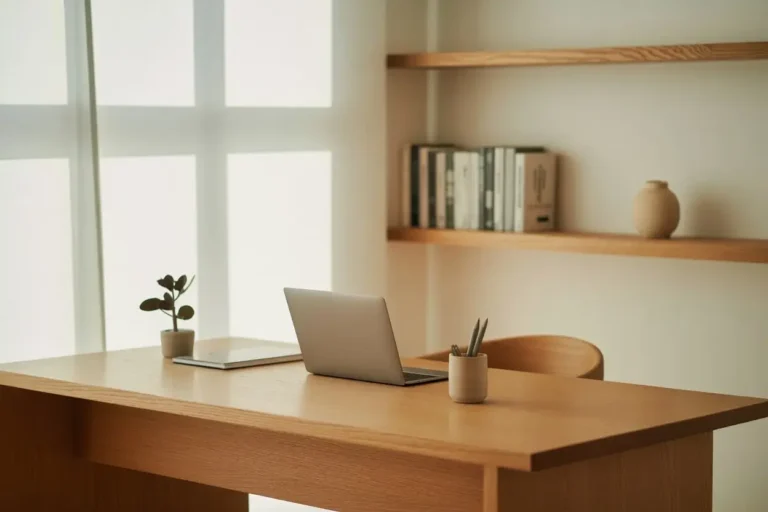When considering a lawyer, the traditional image of a perfectly tailored suit often springs to mind. This is not simply a cliché; there is a valid justification behind it. A lawyer’s suit is not just a garment, but a representation of their professionalism that aligns with the business dress code upheld in the legal sector.
I’ve noticed how a suit acts as a form of non-verbal communication, signaling expertise and respect for the legal process and clients. Choosing the right suit goes beyond fashion; it encapsulates the attorney’s role as a dedicated and competent advocate. Whether it’s a trial, mediation, or a client consultation, the suit I select can significantly influence how I am perceived.
Understanding Legal Attire

When a lawyer steps into a courtroom, the importance of a polished lawyer suit cannot be overstated. It communicates professionalism and respect for the legal process. Here’s how to make the right impression with your attire.
Lawyer Suit Types and Selection
Suits come in various styles, but for the legal profession, single-breasted suits are a staple. They offer a sleek and timeless look, perfect for almost any courtroom setting. However, double-breasted suits can also portray a sense of authority and formality. Regardless of the style, the priority is choosing a tailored suit that conveys seriousness and professionalism.
- Single-breasted: Typically with 2-3 buttons, suitable for most body types.
- Double-breasted: Features overlapping front flaps with two symmetrical columns of buttons; best for taller individuals to accentuate their stature.
Importance of Proper Fit
A suit should fit impeccably, as an ill-fitting suit can detract from the desired image of expertise. When selecting a lawyer suit, make sure the shoulders align perfectly with yours, and the sleeves end just above the hinge of your wrist. Here are a few points on fit:
- Shoulders: Seam should sit at the edge of the shoulder.
- Sleeves: Allow 1/4 inch of the shirt cuff to show.
- Waist: The jacket should close without strain.
Color Significance in Law
Color plays a subtle yet significant role in the courtroom. Most lawyers tend to choose between navy, charcoal, and dark gray as they project professionalism and are versatile for all seasons. Here’s what each color can signify:
- Navy: Conveys trustworthiness and confidence.
- Charcoal: Offers a neutral, balanced presentation.
- Dark Gray: Implies authority while still being approachable.
By understanding these nuances, you can select a lawyer suit that not only fits well but also aligns with the message you wish to convey in the courtroom.
Accessories and Grooming

When I think about perfecting a lawyer suit, accessories and grooming play indisputable roles in the overall look. They reflect professionalism and attention to detail, which are crucial in the legal profession.
Essential Accessories for Lawyers
I always find that the right accessories enhance the lawyer’s professional attire. Here are key items:
- Neckties: A must-have that adds a touch of formality. Opt for neutral colors or classic patterns.
- Pocket Squares: For a dash of elegance and poise, a pocket square complements the suit color.
- Cufflinks: They secure the cuffs of a shirt and are an opportunity to show a bit of personality while remaining polished.
- Tie Clips: Not only functional, keeping the tie in place, but also a subtle signal of meticulousness.
- Briefcases: Choosing a professional briefcase isn’t just about utility; it’s about making a statement of preparedness.
- Dress Shoes: The foundation of appearance; well-kept, quality shoes speak volumes.
Remember, accessories like jewelry should be minimal and not distract from the professional atmosphere.
Grooming Standards for Attorneys
Being well-groomed is equally as important as the suit itself. Here’s what I adhere to:
- Hair: Kept neat, trimmed, and styled conservatively. For those using makeup, it should be understated and professional.
- Facial Hair: If chosen to be worn, it must be well-groomed and trimmed.
- Nails: Clean, well-maintained nails are part of the professional image.
While grooming may vary slightly by personal style and individual office culture, maintaining a polished appearance is key.
Appropriate Attire for Different Legal Settings

When considering lawyer suit options, it’s crucial to tailor your attire to the formality and expectations of various legal environments. Let’s explore the essentials for court, mediations, meetings, and interviews.
What to Wear in Court
In a courtroom setting, your goal is to project a professional image that respects the institution and its officials, such as the judge and jury. For men, a collared dress shirt, a conservative tie, and a well-fitted blazer or suit are expected. Women should consider wearing a suit with pants or a skirt, paired with a blouse that isn’t too revealing.
Outfit Choices for Mediation and Meetings
While mediation and client meetings allow for slightly more relaxed attire compared to court appearances, maintaining a professional look is still important. Men can opt for a dress shirt without a tie and a blazer, whereas women might wear a less formal suit or a dress with a conservative cut.
Accessories for lawyers should be minimal and understated to keep the focus on the discussion. Check out some dress code tips for lawyers in different settings.
Interview Attire for Lawyers
Interviews for legal positions are a critical time to make a strong first impression. Irrespective of gender, it’s advisable to wear a formal lawyer suit that’s well-tailored and free from bold patterns. A clean and pressed dress shirt or blouse and smart shoes complete the look.
Remember that how you dress can reflect your attention to detail, a quality highly valued in this profession. Here are some interview attire suggestions for aspiring lawyers.
Our Tips for the Perfect Lawyer Suit
Crafting the perfect lawyer suit involves attention to detail for a polished, professional look. Here are 10 tips:
- Fit Matters: Ensure a tailored fit for a sleek silhouette.
- Classic Colors: Opt for navy, charcoal, or black for versatility.
- Quality Fabric: Choose durable, high-quality materials for longevity.
- Versatile Shirt Pairing: White or light blue shirts complement well.
- Appropriate Tie: Select a conservative tie that enhances the ensemble.
- Proper Length: Jacket and trousers should be the right length for a refined appearance.
- Well-Maintained Shoes: Polish and maintain leather shoes for a complete look.
- Subtle Accessories: Keep accessories understated for a professional touch.
- Tailoring Details: Pay attention to sleeve length, lapel width, and trouser break.
- Confidence is Key: Wear your suit with confidence; it’s an integral part of your professional identity.
Gender-Specific Guidelines

When I think of a lawyer suit, what often comes to mind is the meticulous professionalism that courtroom attire requires for both male and female lawyers. Specific clothing items are expected for each, impacting not only appeal but also the interpretation of competence and credibility in the legal environment.
Male Lawyers’ Attire
For male lawyers, the standard is quite traditional. A vest is optional but can add an extra touch of formality to a three-piece suit. At the core, a white dress shirt, preferably long-sleeved, is a must. This is typically paired with trousers and a blazer, which should match to form a proper suit.
It’s crucial for the fit to be right; too loose or tight could disrupt the necessary air of professionalism. Shoes should be formal, such as oxfords or loafers, and it’s often advisable for them to match the belt.
Female Lawyers’ Attire
Female lawyers face more complexity with their choices. Options range from skirt suits to pantsuits, with skirts generally expected to be knee-length. A blazer is an essential component of a female lawyer’s suit; it should be well-tailored to complement the look without restricting movement.
For tops, modesty is key, and cleavage should be covered. When it comes to footwear, heels are common, but they should not be excessively high and should always prioritize stability and comfort; flats are also an acceptable choice, especially for long days in court. As with their male counterparts, a white dress shirt or blouse can serve as a formal and versatile option under a suit jacket.
My Opinion About Lawyer Suits
The lawyer suit is more than just clothing; it’s a statement of professionalism and confidence. As a legal professional, the choice of a well-fitted suit becomes a daily ritual, a symbol of authority, and a conduit for self-assurance. The suit, meticulously tailored, transforms into armor, empowering me to face the challenges of the legal arena with poise and precision.
It’s a silent communicator in courtrooms, conveying not just legal acumen but also a commitment to excellence. The selection of classic colors, the careful coordination of accessories, and the attention to detail in tailoring all contribute to a lawyer suit’s significance.
Beyond aesthetics, it embodies the essence of legal identity—a sartorial embodiment of the respect, responsibility, and resilience integral to the legal profession.
FAQ – Lawyer Suit
How many Suits should a lawyer own?
A lawyer typically needs at least three suits for a well-rounded wardrobe: one for regular wear, one as a backup, and one for special occasions. Having a variety of suits ensures a polished and professional appearance, accommodating different settings and events in the legal profession.
What color suits should a lawyer own?
A lawyer should own classic and versatile suit colors like navy blue, charcoal gray, and black. These neutral tones convey professionalism and adapt well to various legal settings. Complementing shirts and accessories allow for a polished and sophisticated appearance in the legal profession.
Do lawyers have to be clean-shaven?
There is no strict rule requiring lawyers to be clean-shaven. However, maintaining a well-groomed appearance is advisable for a professional image. Personal grooming choices may vary, but a neat and tidy presentation is generally expected in the legal profession
Are you interested in topics about lawyers? Then you might be interested in our blogs about lawyers’ fashion and female lawyer outfits.
What are your thoughts about lawyer suits? Let us know in the comments!





